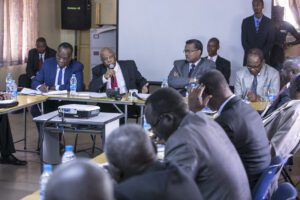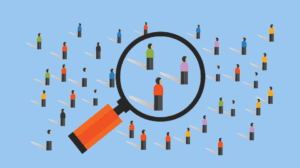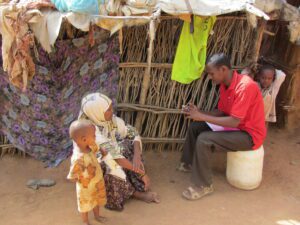In the heart of Uganda, where the landscape of NGOs is as diverse as the wildlife roaming its plains, the need for strategic decisions is paramount. These decisions are the compass guiding these organizations toward their missions. But how do they find true north? The answer lies in the meticulous work of research consulting firms in Uganda. Through their expertise in research and data collection, they transform questions into insights, and insights into strategies, ensuring NGOs are not just surviving, but thriving.
Understanding the Basics
Research and data collection are the lifeblood of informed decision-making. They involve systematically gathering information to answer questions and solve problems. For NGOs, this process is vital. It allows them to understand the needs of their beneficiaries, measure the impact of their programs, and navigate the complex environments in which they operate.
Types of Research for NGOs
The world of research is vast, offering different methods to uncover the truth. Qualitative research dives deep into human experiences, using interviews and focus groups to paint vivid pictures of reality. Quantitative research, on the other hand, uses numbers and statistics to reveal patterns and measure change. Mixed-methods research, combining both, provides a holistic view that is both detailed and broad.
Data Collection Methods
There are many ways to gather data. Surveys and questionnaires can reach a large audience quickly, providing valuable quantitative data. Interviews and focus groups offer personal insights and collective perspectives, revealing the stories behind the numbers. Observational methods capture behaviors and events as they happen, and secondary data analysis leverages existing information to uncover new insights.
Choosing the Right Consulting Firm
When selecting research consulting firms in Uganda, several factors come into play. Their expertise, experience with similar projects, and understanding of your needs are crucial. Asking the right questions can help you choose wisely. For instance, inquire about their previous successes, their approach to challenges, and how they ensure ethical standards.
Designing an Effective Research Strategy
A clear research strategy starts with identifying your objectives and goals. What do you hope to achieve? Whether it’s improving program delivery, increasing donor engagement, or informing advocacy efforts, having specific objectives is essential. Next, select the methods that best suit your goals and create a detailed data collection plan, outlining timelines, resources, and responsibilities.
Implementing Research and Data Collection
Training your staff and volunteers is crucial for effective data collection. Ensure they understand the methods and ethical standards required. Managing resources and budget efficiently is also important. Allocate funds wisely and monitor expenses to stay on track.
Analyzing and Interpreting Data
Once the data is collected, it needs to be cleaned and prepared for analysis. This step ensures accuracy. Statistical techniques can then be used to analyze quantitative data, while qualitative data is interpreted through coding and thematic analysis, revealing the underlying stories.
Turning Data into Actionable Insights
The true value of data lies in its ability to inform action. Present your findings clearly, using visuals to highlight key points. Develop strategic recommendations based on these insights, identifying actionable steps. Communicate your results to stakeholders in a way that is engaging and relevant.
Case Studies: Impact of Research on NGO Strategies
Consider the story of an NGO that enhanced its program effectiveness through beneficiary surveys. Or another that improved donor engagement by analyzing feedback and developing targeted campaigns. These are just a few examples of how research consulting firms in Uganda can make a difference.
Challenges and Solutions in Research and Data Collection
NGOs often face challenges such as limited resources and ethical dilemmas. Partnering with experienced consultants, like those found at QDIC, using cost-effective methods, and adhering to ethical guidelines can help overcome these obstacles.
Technological Tools and Innovations
The future of research is being shaped by technology. Data collection software streamlines the process, making it easier to gather and manage large datasets. Advanced analysis tools help uncover deeper insights. Innovations like AI and machine learning promise to revolutionize research, offering new ways to understand and act on data.
Building a Culture of Data-Driven Decision Making
Encouraging data literacy within your organization is key. Provide training and promote continuous learning. Integrate data into everyday operations, using dashboards and reports to keep everyone informed. A data-driven approach leads to more informed decisions, greater transparency, and improved outcomes.
Conclusion
In the symphony of Uganda’s NGOs, research and data collection are the harmonies that enrich their melodies. Research consulting firms in Uganda play a pivotal role in this, transforming raw data into symphonic insights that drive strategic decisions. By embracing a systematic approach and partnering with experienced consultants, NGOs can ensure their missions are not just envisioned, but achieved.
FAQs
How can small NGOs afford professional research consulting?
Small NGOs can seek grants specifically for research, partner with academic institutions, or use pro bono consulting services to afford professional research consulting.
What are the ethical considerations in NGO research?
Ethical considerations include obtaining informed consent, ensuring participant confidentiality, and conducting research with respect and integrity.
How long does it typically take to see the impact of research-driven strategies?
The impact of research-driven strategies can vary, but NGOs may start seeing benefits within a few months to a year, depending on the scope and nature of the research.
Can NGOs conduct research in-house without external consultants?
Yes, NGOs can conduct research in-house if they have the necessary expertise and resources. Training staff and using appropriate tools can facilitate in-house research.
What are some examples of successful research-driven strategies in NGOs?
Examples include using beneficiary feedback to improve program design, leveraging donor data to enhance fundraising efforts, and employing community needs assessments to inform advocacy campaigns.






